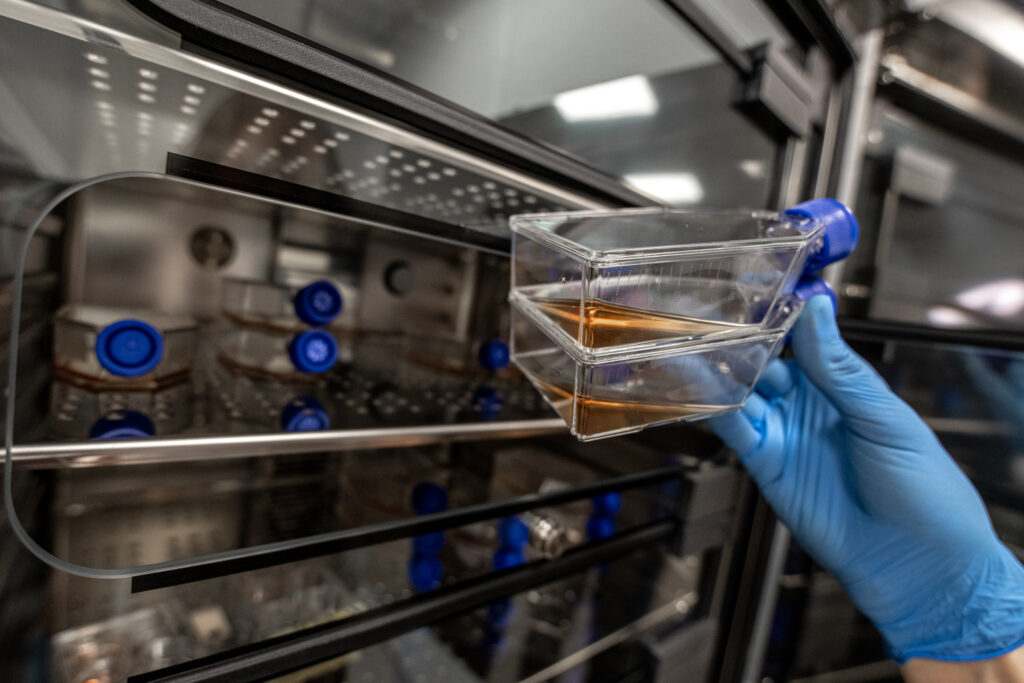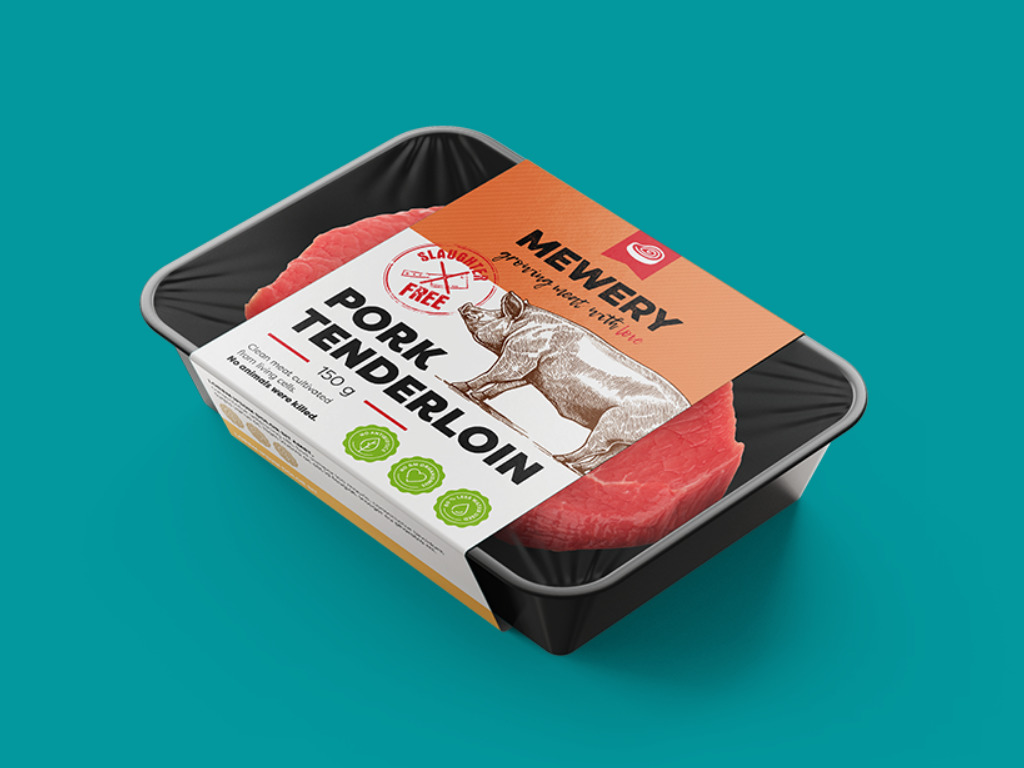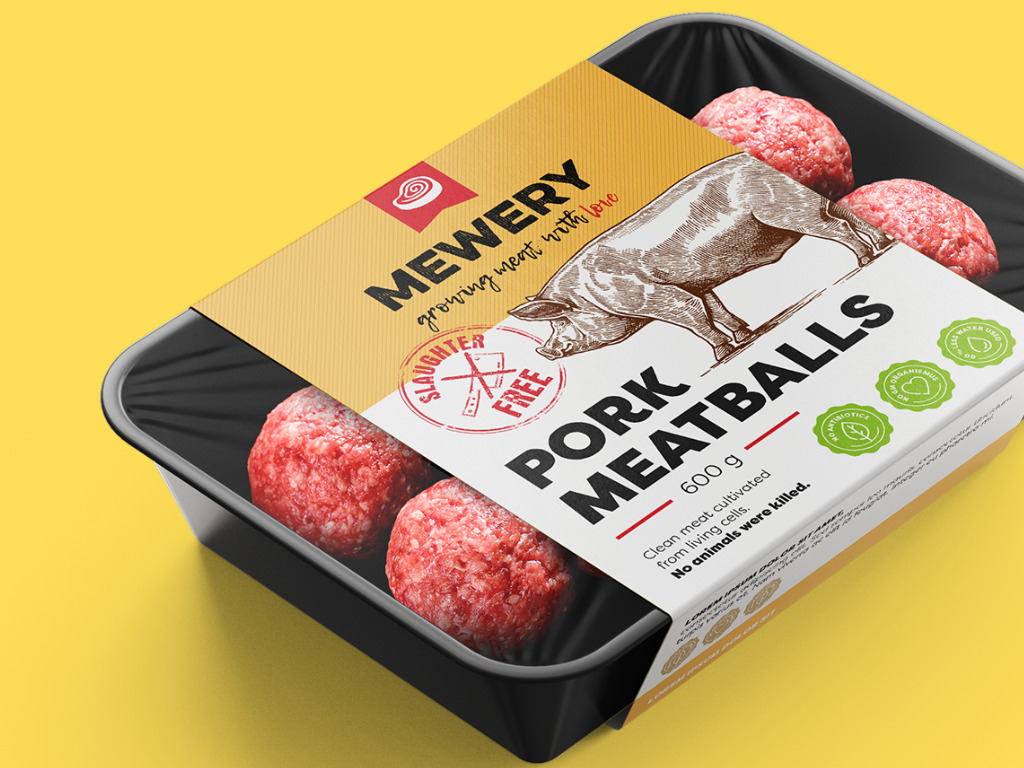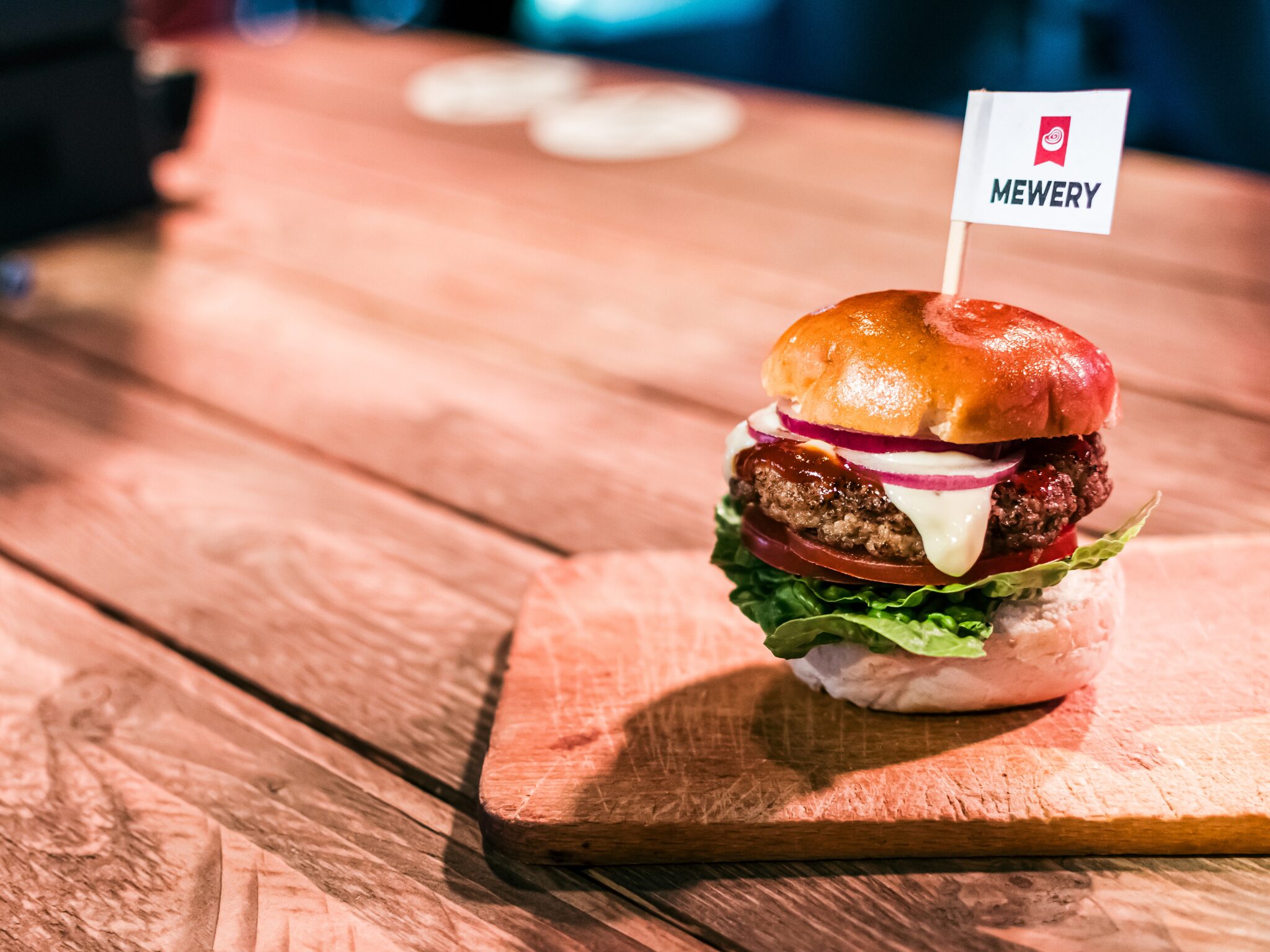Mewery Establishes Stable Cell Line to Scale Up Cultivated Pork Production Ahead of Pilot Plant Opening
5 Mins Read
Czech startup Mewery has achieved a breakthrough in its tech to produce cultivated meat, establishing a stable cell line to enable scalability.
Mewery has formed a stable cell line in the development process for its cultivated pork, a key step that will help enable large-scale production of its meat.
The Brno-based startup’s scientists conducted a number of cell isolations to identify which ones exhibit the most favourable response to its co-cultivation technology, which involves pig and microalgae cells in a serum-free medium.
“This achievement represents another important step forward in our ongoing efforts to bring cultivated meat to consumers,” said chief science officer Vladislav Strmiska. “The establishment of a stable cell line lays the groundwork for consistent, high-quality meat production without relying on animal agriculture.”
The milestone will help Mewery move from lab volumes of dozens of litres, and potentially hundreds of litres volume in its pilot facility, which is set to be operational in the coming months. “We are also just in the pre-negotiation phase with potential commercial scale-up partners in Europe and the US,” Rostislav Brzobohatý, Mewery’s chief commercial officer, told Green Queen.
The company is in talks with a partner in Switzerland for the successful completion of its proprietary co-cultivation process in large 200-litre bioreactors and the launch of its demo operations, which are its immediate priorities.
How stable cell lines benefit cultivated meat production

A stable cell line refers to a cell population that can continually grow and retain the desired properties over many generations. It’s the foundational building block of cultivated meat, but a lack of availability of the right cell lines has been a major bottleneck for commercialisation in the industry.
Achieving stable cell lines represents a few major advantages for producers. First, it enables them to deliver consistent quality and taste. Stable cells allow precise control and characterisation, ensuring that each batch delivers a piece of cultivated meat identical to the one before.
Secondly, it reduces the reliance on livestock farming, eliminating the need for animals in the production process. A 2023 industry survey by think tank the Good Food Institute revealed that 74% of companies have achieved identical or better results after establishing a cell line in serum-free conditions.
And finally, it paves the way for large-scale production of cultivated meat, helping companies accelerate their path to commercialisation.
Apart from the stable cell lines, Mewery has also expanded its cell bank to include multiple types of non-genetically-modified porcine cells. This will help it optimise the growth conditions of these cells for faster and more efficient production, and create a broader range of cultivated meat products, such as different cuts of meat.
“We are committed to developing delicious, sustainable, and accessible cultivated meat for everyone,” said Mewery CEO Roman Lauš. “This breakthrough brings us a significant step closer to achieving that goal.”

In January, Mewery was awarded €200,000 in grants from the Czech government to further improve its platform’s efficiency. The funding was set to be used to characterize basic parts of the production process and expand research efforts into cell growth and interactions. “This knowledge will be essential for designing a near-future scalable production process that is efficient, cost-effective, and meets the highest quality standards,” Lauš explained at the time.
But while the startup did receive backing from the Czech government, the country’s lawmakers were also in support of an EU bill that sought to restrict the cultivated meat sector earlier this year. “We have also learned that our government’s view on the EU Agrifish Bill is just to start a broader discussion,” Brzobohatý revealed, adding that Mewery has had a “very positive experience” while in close contact with the agriculture ministry. “We are actively discussing the creation of a legislative framework to allow controlled tastings inspired by the Dutch model.”
It was only last month that Dutch cultured pork producer Meatable held the EU’s first public tasting of cultivated meat, after its government established a framework for such events. It followed US producer Fork & Good’s pub dinner in Switzerland and Australian startup Vow’s event in Iceland (it has since obtained Singaporean approval for its cultivated quail).
“As regards the proposals to restrict cultivated meat, our view is clear,” said Brzobohatý. “We believe that the choice of the food they consume is up to the consumers alone. If such food is approved by the authorities whose jurisdiction and competence this falls under, all parties should accept this. The role of politicians is to set the framework and possibly moderate the debate, but they should certainly not seek to substitute for food safety authorities.”
Mewery also indicated that part of the government investment will be used for data gathering ahead of filing for regulatory approval. While its first choice would be to apply in the US, if the regulatory framework in the EU is cleared up by this time, it will likely do so there too. “Another country we are considering is Switzerland, which meets our requirements for our pre-commercial pilot operation,” said Brzobohatý.
Disrupting an industry in disarray

Founded in 2020 by Lauš, Mewery has previously teased products like meatballs and tenderloin made from 75% porcine cells and 25% microalgae cells – by developing pork on microalgae scaffolding, the startup has slashed production costs by 70%. Last year, it debuted a burger at a small tasting in its home country, where over 90% of attendees indicated their willingness to taste the cultivated product.
When asked whether its products would be hybrid (a mix of cultivated animal cells and plants), Brzobohatý said: “We are continuously exploring all the possibilities. Our product is inherently hybrid by virtue of our co-cultivation method of combining pork cells with microalgae cells. At the same time, we are considering a pork burger as our first product, which would be a natural fit if combined with plant-based mass.”
Concerns about pig meat have continued to boil over African Swine Fever outbreaks in many parts of the world recently, with pig populations being culled in Russia, Hong Kong, the UK, the US and India. This has led to a shortage of pork and subsequently driven up prices, with the viral disease adding to the meat’s already carcinogenic status.
It’s why novel options like Mewery’s are crucial for a stable and sustainable food system. Clever Carnivore, Uncommon, Ivy Farm Technologies, Joes Future Food Tech, CellX, Magic Valley, MyriaMeat, and Meatable are all working on cultivated pork too.



